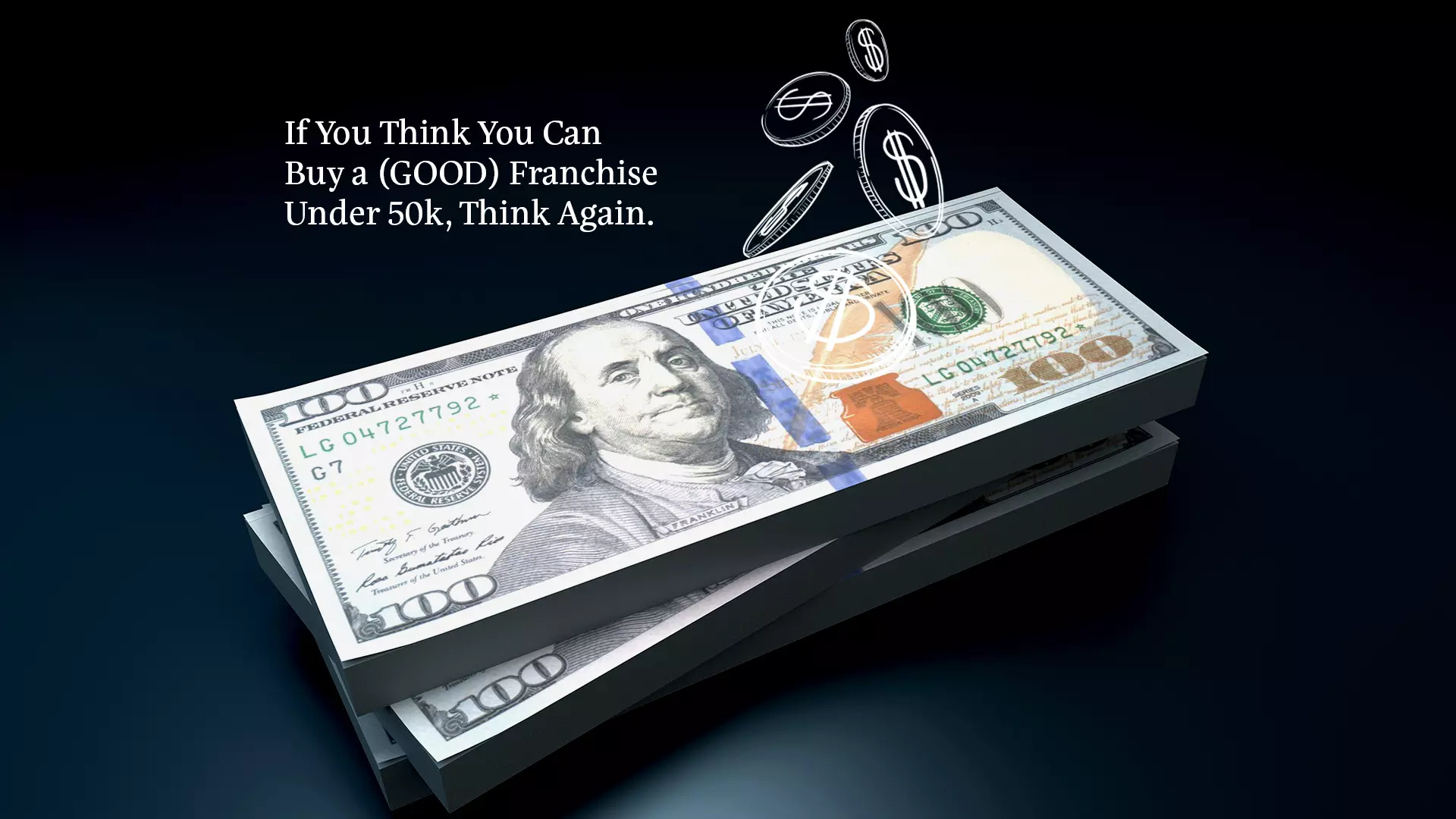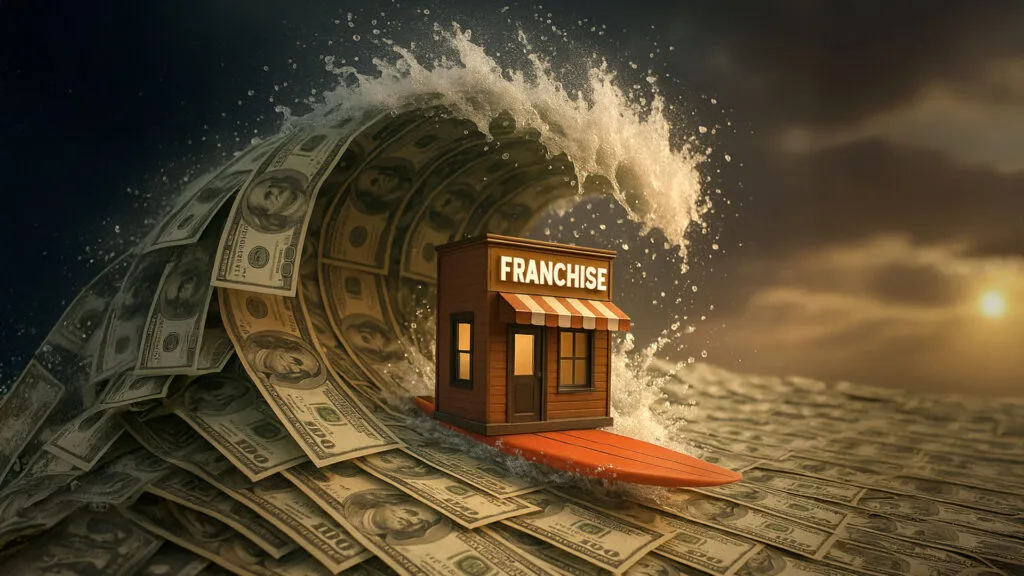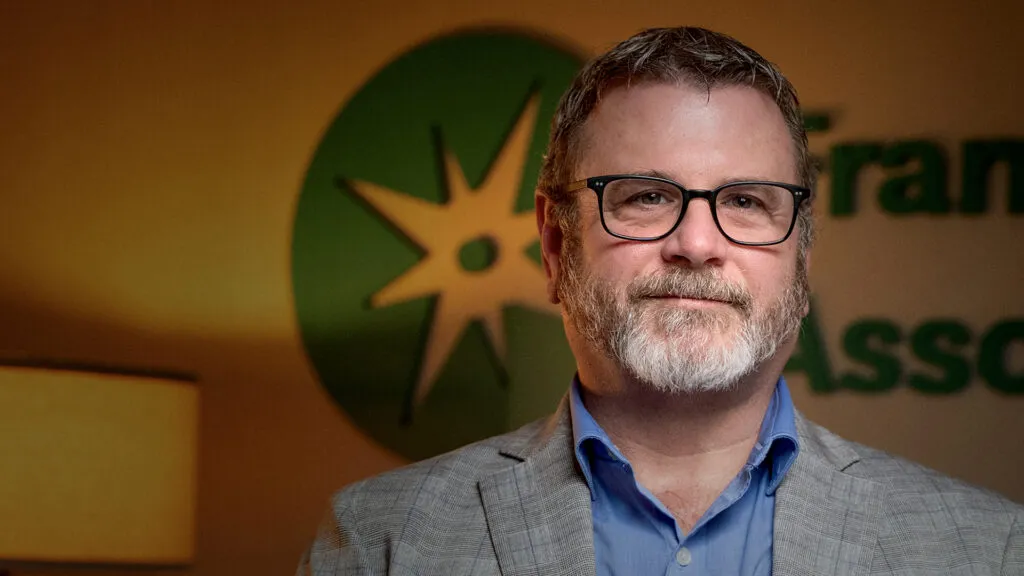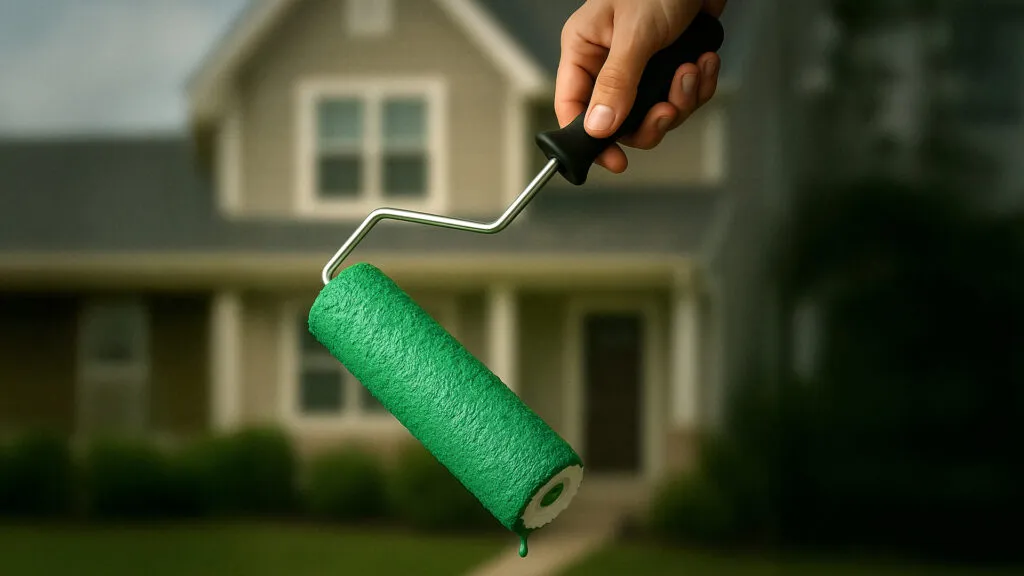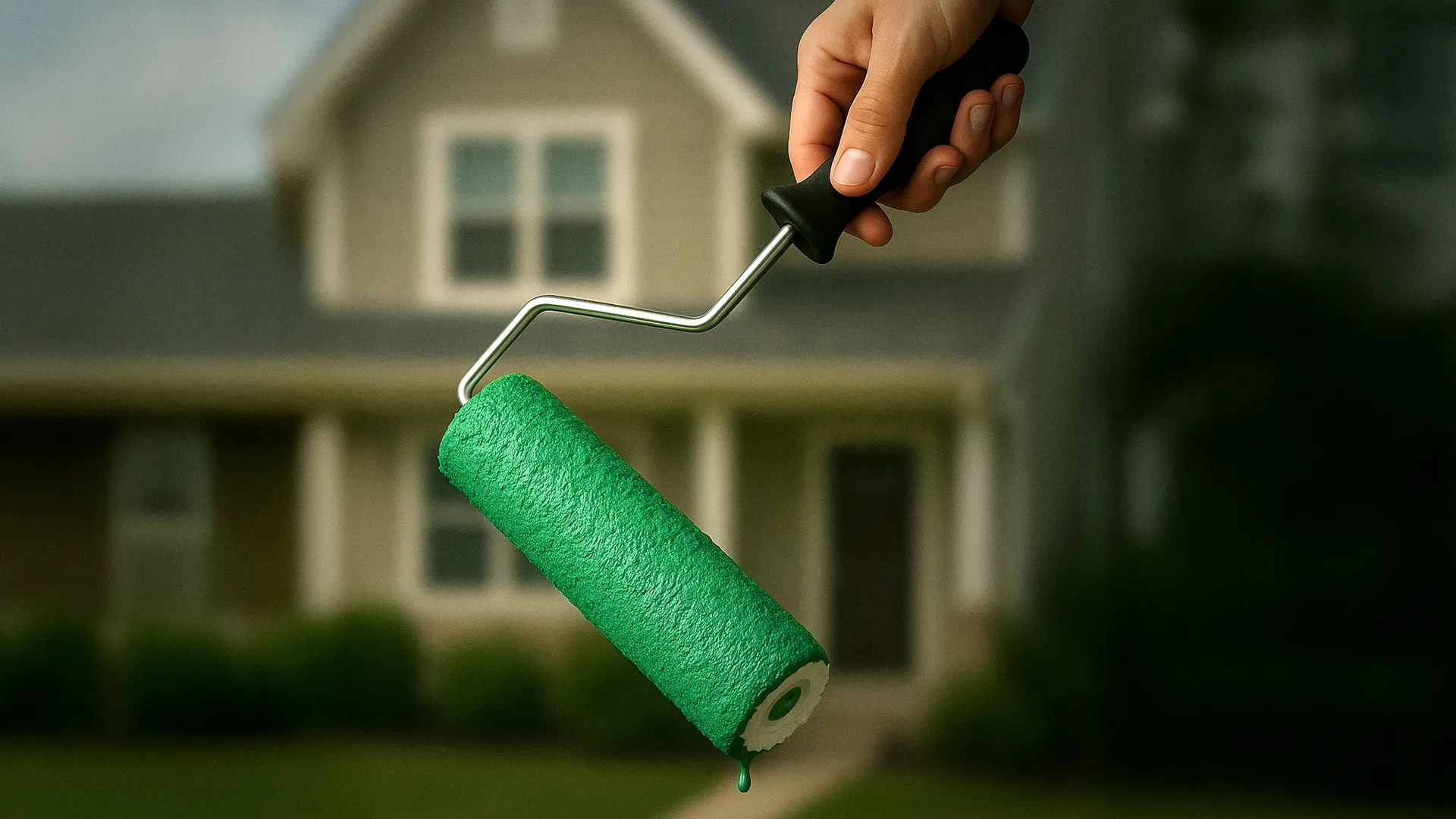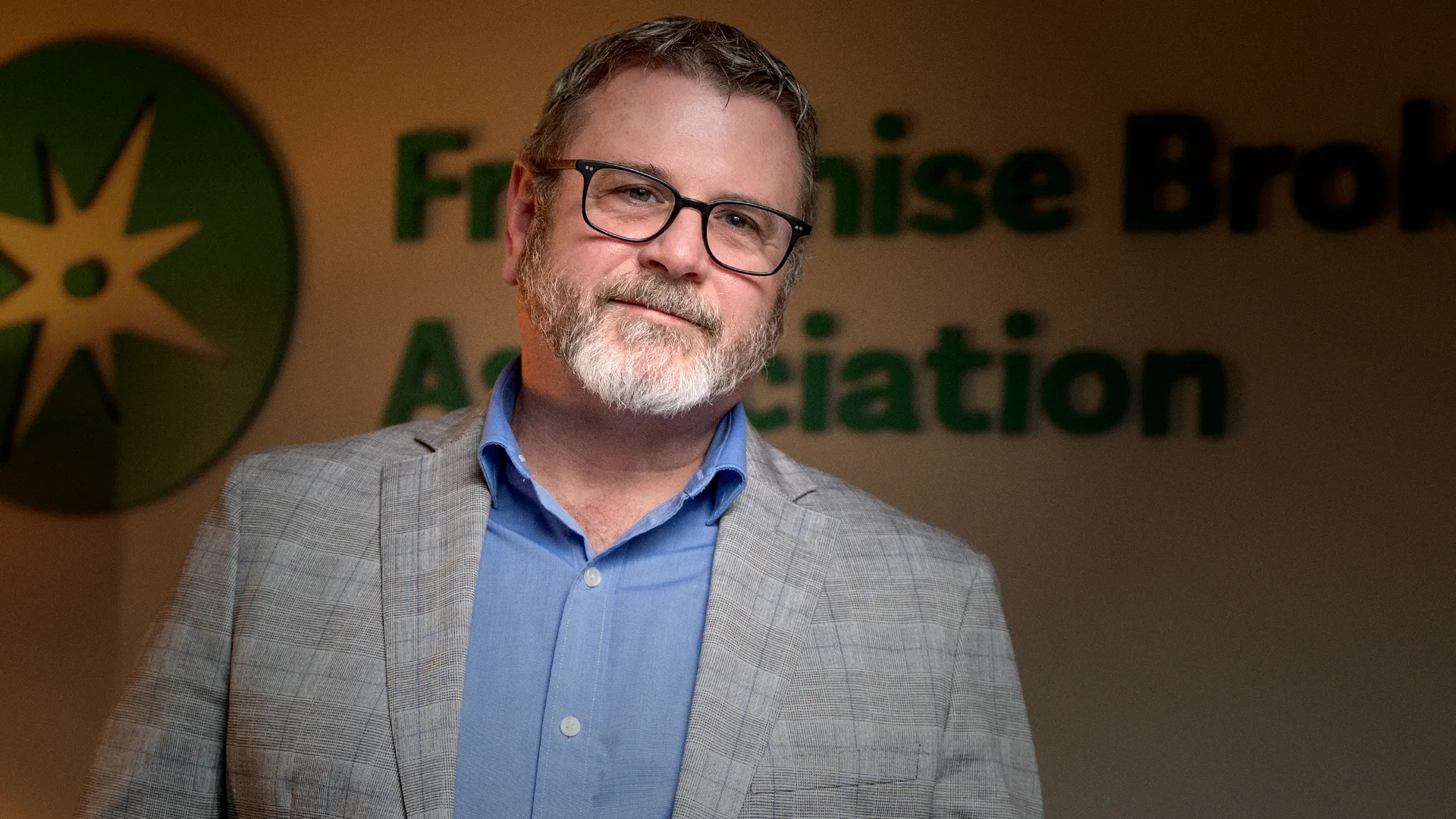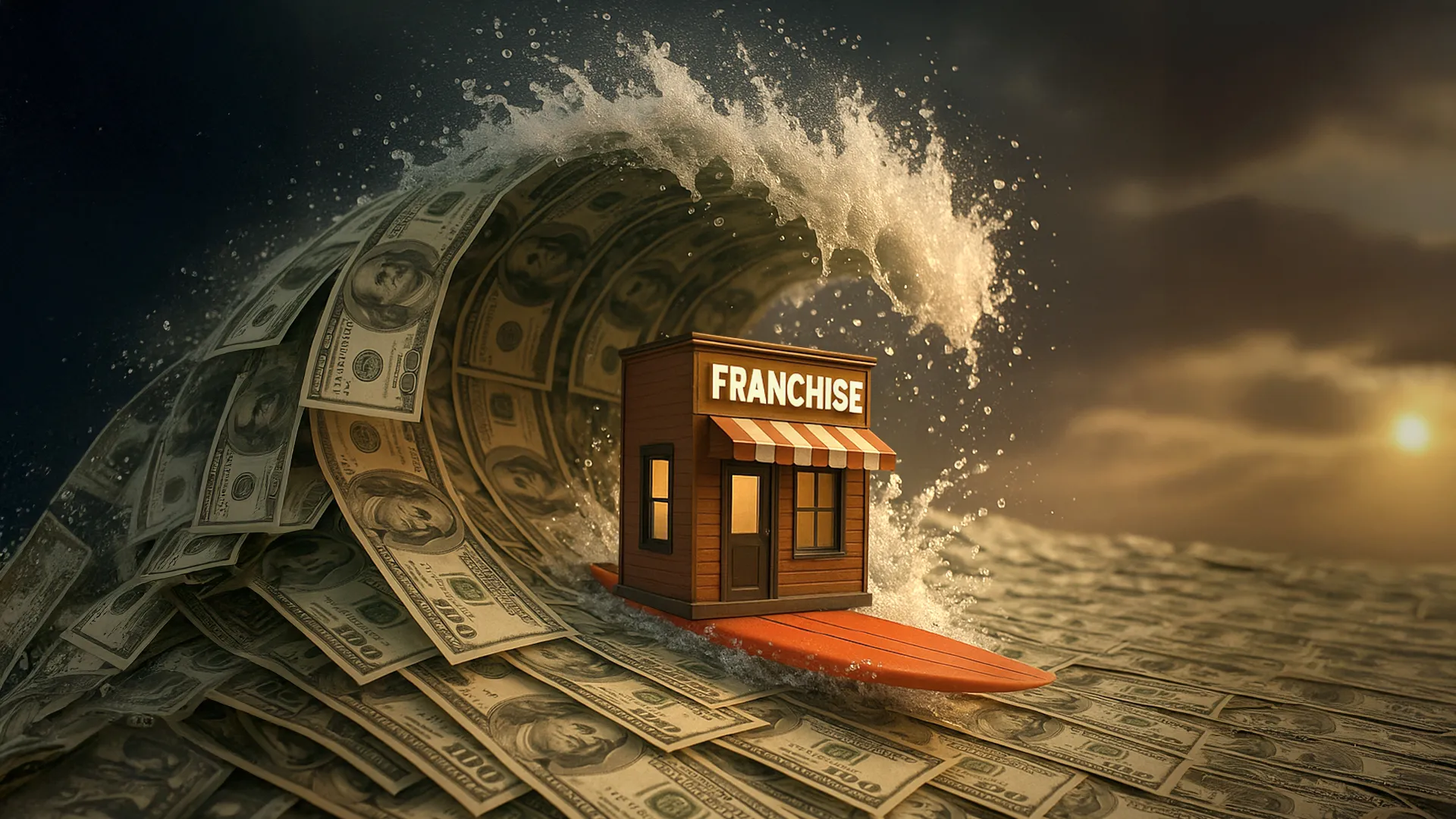You’ve got $50k burning a hole in your pocket, a dream in your heart, and a thought roaming in your mind: “Can I start a business with this amount?” Luckily, there are many franchises under 50k available that can help turn your entrepreneurial aspirations into reality.
Then reality taps you on the shoulder. You realize that building a business from scratch isn’t quite what you’re looking for. After all, the thought of pouring years into crafting your brand, managing daily operations, and doing this all on your own means that in some ways you’d have success without actually enjoying your life. We say this because the first five years of building a business are spent devoting excess time and energy and getting almost nothing in return.
So, scratch that.
Still hopeful, you look into other business ownership options and see online that franchises under 50k exist!
But let’s pause here. Not all good things are too good to be true, but have you considered that franchises under 50k may not be as robust of an investment as you might think?
Yes, there are brands in this price bracket, but they are fewer and different in nature. More often than not, they represent business opportunities. How does a business opportunity differ from franchising? We’re about to answer this.
But overall, does that mean your dream of owning a franchise is out of reach? Absolutely not.
But it means that you’ll need to explore beyond the confines of your initial capital. If franchising is your goal, there are various funding options that can help you bridge the gap between your current budget and the franchise you have your heart set on.
Or, there are brands to explore that fit your budget but you may want to approach the research process with open eyes.
Remember, the journey to owning a franchise isn’t merely about the funds you have – it’s about your willingness to see the opportunities, your determination to overcome the hurdles, and your resilience in the face of challenges.
But that’s what we’re here for.
Our goal is to help bring understanding to franchises under 50k – such as which brands these are, if they are good investments, and if not, what your other options are. In addition, we’ll explain why the franchise industry is still a great option to explore and how we can help you get closer to making this new dream a reality.
Business Opportunity vs. Franchise
Business opportunities differ from franchises in one main way: the support structure.
Imagine a business opportunity as a DIY kit. You’re given the blueprints, the tools, and the initial guidance to set up the structure. But once that’s done, you’re mostly on your own.
There’s no royalty because the entity offering the opportunity isn’t investing in ongoing support. They give you the resources to launch your venture, but the hand-holding and step-by-step guidance you’d typically get with a franchise falls away.
For some, this setup might seem challenging. For others, it could be the perfect opportunity to dive into the deep end and take full control of their business, with the freedom to navigate as they see fit. After all, you are building something personal, a venture that is distinctively yours. It could take more from your time and demand more of your resources, but it’s also an opportunity to shape your destiny.
This ‘business-in-a-box’ model may feel like an uphill task, but it’s essential to remember that it’s still more affordable than building a business from scratch. A typical $50k business opportunity provides you with a manual for your venture, which can be invaluable as you navigate the entrepreneurial waters.
Yes, it’s not as comprehensive as a franchise offering, but it’s a start, and sometimes, that’s all you need – it depends what you’re looking for.
Understanding the Landscape of Franchises Under 50k
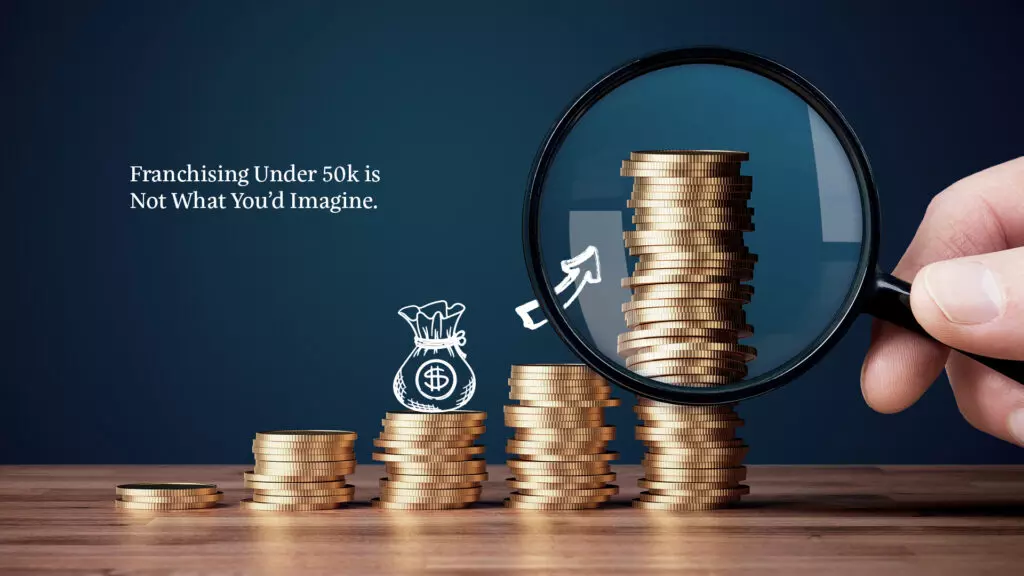
You might be eager for us to just dive straight into a list of franchises under 50k. However, we owe it to you first to shine some light on the reality of this price point in the franchising world.
The $50k figure is somewhat of an enigma within the buyer’s market.
When it comes to investing in a franchise, some industry insiders often point to a baseline of $100k. This isn’t a definitive number, but more of a suggested starting point. It implies that if you’re hoping to invest in a well-established brand–a franchise with a strong track record and potentially profitable return on investment–you’re likely looking at an initial investment north of $50k.
For instance, let’s consider some franchises that might pop up in a Google search or those that you might frequently pass by in your town. Think of brands like Chick-fil-A, Crumbl Cookies, Five Guys, Subway, and countless more. The investment for these big-names typically runs into the hundreds of thousands of dollars, setting a high expectation for what franchising entails.
When you realize that the franchises available under $50k are usually smaller, lesser-known brands, it might feel like a reality check. However, this isn’t meant to discourage you. Instead, it’s to help set realistic expectations about the landscape you’re venturing into.
It’s in these less charted territories where your entrepreneurial spirit can truly come into play.
One approach that could be particularly beneficial in this price range is a scaling strategy. This is where you purchase a lower-cost franchise that you can comfortably afford, put in the work to make it successful, and then sell it. The proceeds from the sale can then be used to invest in a larger, more established franchise. This method is often likened to climbing the franchise ladder and can provide a way for those just starting out in this journey to attain a similar level of success as major investors.
Whether you’re starting at the lower end of the investment spectrum or you have the resources to invest in a larger brand right off the bat, it’s not out of reach for anyone. We all have different starting points, but with the right strategy and mindset, the dream of owning a successful franchise can become a reality.
What Does $50K (or Less) Get You?
In this price range, you’ll often find yourself exploring industries such as cleaning, child care, funding, vending, home-based businesses, or low-cost retail. These categories typically have a common theme – they are heavily service-oriented.
Why do these businesses often come at a lower cost? Here are a few reasons…
1. Lower overhead costs. With some franchises in this price range, particularly mobile or home-based businesses, there’s often no need for a brick-and-mortar storefront, which significantly reduces costs related to property rent, utilities, and maintenance.
2. Smaller staff requirements. Many of these businesses can be started and run with just one or two people, thereby reducing payroll costs – which is typically a significant sum in any business.
3. Simplified operations. Franchises under 50k often have straightforward, easy-to-manage business models. This simplicity can translate into fewer startup costs (such as buildings and equipment) and lower ongoing operational expenses.
Lower-cost franchises come with their own unique benefits and challenges. On the one hand, they provide an accessible entry point into the world of franchising, coupled with the potential for greater flexibility. This could be the perfect fit if you’re seeking to dip your toes into business ownership, balancing this new venture with other employment, or aiming for a more harmonious work-life balance.
But let’s clarify something – when you venture into franchising, regardless of your investment level, a substantial time commitment is the norm. Unless you’re exploring passive investment businesses–which usually comes with a high price point–you should be ready to work both IN and ON your franchise.
However, in the under $50k realm, your responsibilities could be even more hands-on. These opportunities might require you to be actively involved in the day-to-day operations, especially in the early stages. That’s not necessarily a bad thing. It depends on your expectations and the role you wish to play in your business venture.
For instance, with your future franchise, are you prepared to roll up your sleeves and help grow your brand from say the middle up (rather than the ground up)?
Lastly, these lower-cost franchises might not come with the comprehensive support package that big-name franchises offer. Sometimes, what you’re buying might be more akin to a license or a brand name, rather than a full-fledged franchising package. This again underlines the importance of knowing what you’re getting into and ensuring that it aligns with your goals and resources.
You should speak to a franchise broker, we know a few!
Financing Your Future Franchise

At this point, you might be asking a couple critical questions…
Can I attain the franchise I truly desire within my budget? And if the answer is not quite, then what steps can I take to bring my dream to life?
This is where you need to think beyond your immediate funds. Remember our discussion about the suggested baseline figure of $100k in the franchising world? Having less than this shouldn’t deter you. It’s simply a prompt that you may need to investigate further into options for additional financing.
Contrary to what you might think, financing is not about overextending your financial capacity. It’s about leveraging resources in a strategic manner to achieve your dream. It’s a common wealth strategy utilized by the super-rich, which can also be employed to build your wealth. If you want to delve deeper into this concept, check out “The Value of Debt in Building Wealth” by Thomas Anderson. He talks about how you can get so much further by leveraging debt intelligently.
Consider this: you’re not just taking on debt, you’re investing in an asset – your franchise – that has the potential to grow and enrich your future. It’s akin to the strategy of buying multiple houses with a certain amount of money instead of just one.
For example, with $100k, instead of purchasing one house outright, you could put down $10k on 10 different houses, rent them out, and have your money work for you.
Also, a host of financing options are available for potential franchisees – bank loans, grants, SBA loans, even borrowing from retirement funds.
Sometimes, it’s even possible to find franchise systems offering their own financing solutions. While this isn’t a common practice (most prefer franchisees with liquid cash), it’s not unheard of.
Exploring alternative financing channels like seeking help from family, using personal savings, leveraging home equity loans, or entering into business partnerships can also pave the way to your franchise dream.
As they say, where there’s a will, there’s a way.
But, what are you willing to do to make your franchise dream a reality? Are you open to exploring these funding options? Are you prepared to commit both financially and in terms of your time and energy?
As you navigate through potential franchises and financing options, pause and reflect on what you’re truly willing to commit.
Put Your Dreams Into Action
Do you believe this, yes or no. Just because the journey might be different doesn’t mean it’s any less rewarding or fulfilling.
Remember, no dream is too big or too small – it’s about what resonates with you, what ignites your spirit, and what you’re willing to pour your heart into.
Don’t let the number in your bank account define your entrepreneurial journey.
Instead, let it be defined by your desire to create, contribute, and change the world in your unique way.
Yes, franchises under 50k might be smaller in scale and lesser-known. But they also offer a gateway to opportunities that can be tailored to reflect your personal touch, carving a unique path to successful business ownership.
So, what now?
If you’ve discovered that your dream franchise might require more than your current budget, don’t see it as a roadblock but rather as an opportunity to explore the numerous financing options available.
We are here to help you find what fits your lifestyle, budget, and yes, you guessed it – your dreams.
Find the best franchise opportunity for you: https://www.franchiseba.com/find-franchises/



